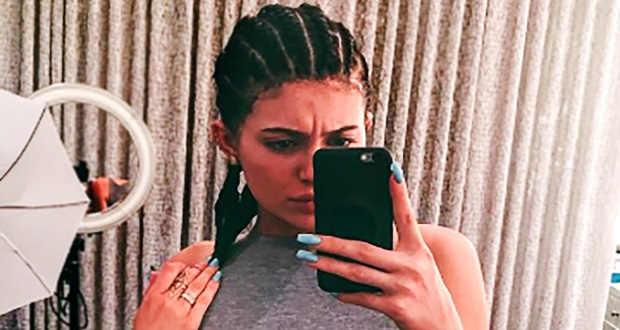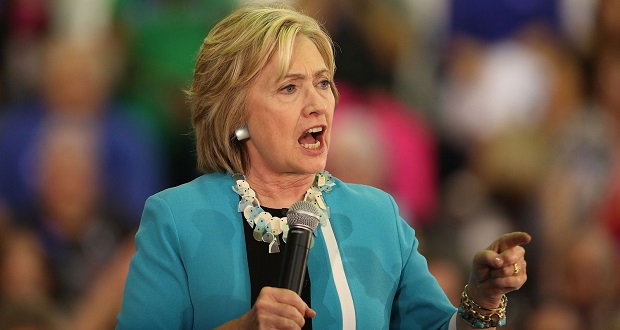
This blog post is kind of sort of but not really but still somewhat about whether it’s OK for a white girl to wear cornrows. Confused? Here’s the story of Cornrow-gate:
Recently, 17-year-old Kylie Jenner, who is white, posted an Instagram photo of herself wearing cornrows, a hairstyle traditionally worn by black women. That didn’t go over well with Amandla Stenberg, the 16-year-old black actress best known for her role in The Hunger Games. Stenberg took to her keyboard to say that Jenner was appropriating black features and culture but failing to use her position of power to help black Americans by directing attention toward wigs instead of police brutality or racism.
So?
So Stenberg is right that the Jenner sister was looking more like a sistah. She’s also probably right that Jenner is no poster child for racial equality.
So?
So when a black woman wears her hair like a black woman traditionally wears her hair, she gets stigmatized as That Black Woman. Don’t pretend you don’t know what I’m talking about. A white female doing the same is fashionable and edgy.
So?
So someone from a privileged class should not adopt characteristics of a traditionally oppressed class without also publicly advocating for it. So said Stenberg.
But she is wrong. The illusion that any group owns any style is just that—an illusion. A category of people cannot own a trait. Nor should such a group create rules around the whos, whats, whens, wheres, and hows of adopting a trait. This isn’t like buying a home in which you make guests take off shoes. Last I checked, which was never, there’s no U.S. patent on cornrows. As a result, you cannot “steal” from a culture that which it does not own. Just because black people have customarily worn cornrows does not mean that they get to be the cornrow police.
Especially because there is no “they.” Stenberg never claimed to speak for all black people because she seems intelligent enough to know she can’t and shouldn’t. Still, she is black (technically biracial), so…
So what? We should not give extra weight to her judgment that it is insulting to mimic black culture when one doesn’t stand up for black people.
None of which justifies some of the backlash to her remarks that amounted to more or less labeling Stenberg an Angry Black Girl, the cheapest way of trivializing a black woman’s perspective. Actually, Stenberg was more poised than I was at 16 and certainly more eloquent than most adults three times her age. Responding to her critics, she rightly pointed out that she’s not angry—she just has strong opinions.
When a friend of mine posted about this story on Facebook, she sparked a debate that I knew I shouldn’t enter. We all know how these social-media conversations go. They start out one way and inevitably end in a puddle of mud. Everyone feels dirty. But I took the bait.
Fundamentally, my friend said that appropriating black style often reinforces racist stereotypes. But how is a white girl in cornrows doing that? As always, it’s important to consider context. It’s not as if David Duke hired Jenner to mock black people (though her original hashtag, “whitegirlsdoitbetter”, was definitely insensitive).
What really bugged me was when my friend said, “As fascinating as it is to know what white men of European descent think is and isn’t acceptable when it comes to cultural appropriation, I’m going to check my own privilege and defer to people who are on the receiving end of cultural thievery wrapped in centuries of racism.” A pseudo-intelligent devaluation of my “white” opinion.
Look, I’m gay. I’ve experienced homophobia in ways that you may never. While my background gives me a different perspective and may inform my viewpoint, it does not inherently validate my opinion on gay issues. That’s akin to saying that my stance on abortion matters less because I’m not a woman. My friend’s logic implies that her own stance on this issue carries less weight because she is white. Most absurdly, it suggests that even if two people agree on a subject pertaining to black people, we should value what the black person says more. As if all black people think alike. As if a black man from Compton and Oprah experience the same type and level of racism.
Want proof of diversity of thought within the black community? (As if you need it!) Check out this clip from ABC’s What Would You Do? showing hidden-camera footage of how some black people reacted to a white girl who doesn’t dress like your typical white girl. (Hint: She’s sporting cornrows!) See what moves a black female to tears in the end. All of which clearly nullifies my friend’s reasoning of deferring to “people who are on the receiving end of cultural thievery.” Exactly which people are we talking about? Exactly which black person’s stance are we supposed to value most?
Remember this: When someone tells you that your opinion counts less because you are or are not a member of a certain group, unless you are discussing astrophysics and you are not an astrophysicist, keep talking! Don’t buy into that crap. After all, you can keep refining the criteria of a group until you are left with just one individual. At that point, the argument for valuing an opinion based on group membership breaks apart because what you are now really considering, and what you should be considering, is the perspective of the individual.
Otherwise, it would make no sense for me to contribute to this blog unless I were writing about the plight of white, Jewish, gay, 39-year-old, New York-based males with brown hair and blue eyes that are really brown without contact lenses! (Agh! Now I feel like the Angry White Male!)
What’s more, one commenter wrote that it is only up to the oppressed to decide whether something is OK. Except, not really. It’s up to all of us, as individuals, to use logic to reach such conclusions. Empathy and sympathy are nice, but they are not essential when thinking about ethics.
That I happen to be a member of a privileged class (white males) probably allows me to wear a hoodie at night. That people may look upon a white girl with cornrows, because she is white, more favorably than a similar black girl is terrible. But to use privilege as a means to restrict someone from saying this or doing that won’t solve any problems. Just the opposite. It will fuel more divisiveness.
We should instead concentrate on ensuring that everyone enjoys the same basic rights and freedoms. That’s not going to happen through social curbs that fail to accommodate context. I hate the notion of using group membership as a means to constrain fashion, music, language, and art. Solutions won’t arise by wagging fingers at white teens in cornrows. They will come about when we all start caring as much about black people as about black culture.
(Then again, you’d think the way the Facebook thread devolved, that I’m not really concerned with equal rights, anyway. And that I don’t care what black people have to say about this topic because, well, it’s all Ebonics to me! Really, I just want to find a good hair salon for some cornrows, but then, why bother? My pointy white hat would cover them regardless. )
Finally, perhaps what annoyed me most was when my friend cited my “racist attitude” and referenced my “White Male Tears,” stating that she wasn’t concerned with whether white people in America felt like their voices were being heard.
I’m concerned that everyone’s voices are heard. (Never mind the reaction I would’ve received had I written “Black Female Tears.”) My opinion matters. Your opinion matters. What do you think?



















I think you need some education about cultural appropriation. Here’s one blog you can look at:
http://everydayfeminism.com/2015/07/white-people-black-hairstyles/?utm_source=Everyday+Feminism+Subscription&utm_medium=email&utm_campaign=c1388c3a9c-RSS_EMAIL_CAMPAIGN&utm_term=0_d19c2176ed-c1388c3a9c-91553605
Darlene, thanks for taking the time to read this post and comment. And thanks for offering up the link above. It was a good read, and it makes as good a case as one will find against cultural appropriation. But I still don’t subscribe to that argument. I don’t think that adopting traditionally black cultural elements does much to help black people, but I also don’t believe that doing so is a legitimate harm either. Would it be better if white people who adopted black cultural traits did more to advocate against racism? Absolutely! But such advocacy should not be a prerequisite for dressing a certain way, etc. I don’t think white people abstaining from adopting black cultural characteristics will help any cause.